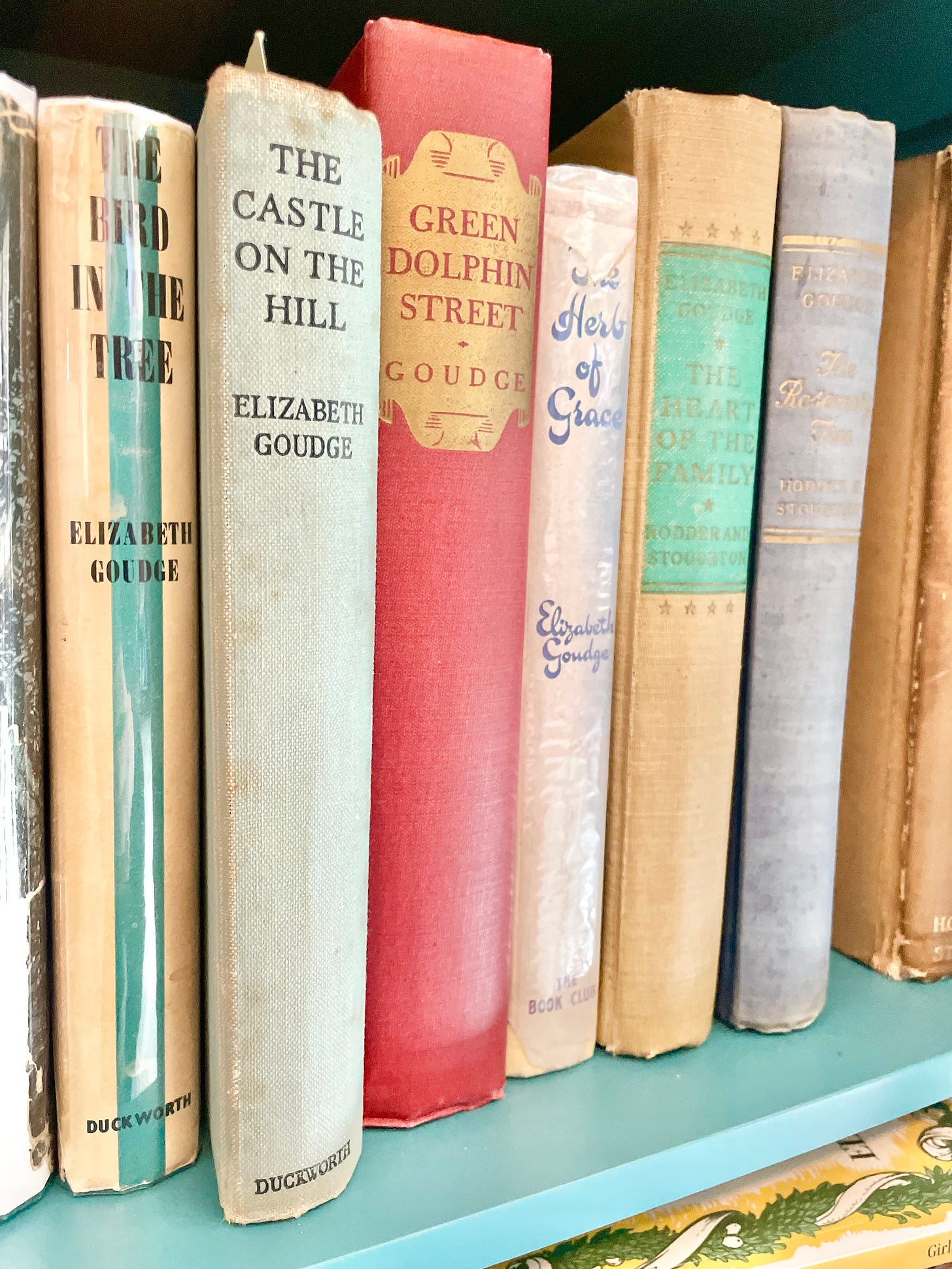The Castle on the Hill: Week 2
Goudge's Thoughts on War, Humanity, Artists & Displaced Children
Miss Brown had pulled off her gloves and picked a sprig of rosemary from the bushes which grew amongst the lilies and roses… just as she used to press her rosemary in the little garden at Sea View. Its hot sweet scent floated up to her and she was suddenly astonished…to find something remaining from the old days that was just as lovely as it used to be.
"It's just the same," she said, opening her fingers and looking wonderingly at the silvery sprig lying in the palm of her hand. "Somehow I had expected it to have lost its scent…”
"Nothing has lost its scent," Stephen said quickly. "Nothing in the natural world has abated its beauty by one jot. It was the most perfect spring, wasn't it, it is the loveliest summer I ever remember…”
🌿 Elizabeth Goudge, The Castle on the Hill
Welcome to our Week 2 discussion of The Castle on the Hill!
Elizabeth Goudge moved to Devon in 1939 after the death of her father, and soon the country was at war. When Goudge picked up her pen to encourage her readers, she chose first to write a Devon fairytale (Smoky House, which we will read together in April), then another fairytale (Henrietta’s House which we just read in February) and also an adult novel, The Castle on the Hill. While she included lots of comfort and cues of safety in her fairytales, her adult novel is much more autobiographical—not in plot (she did not fall in love or work in a castle while in Devon), but it lays out for us many of her interior thoughts and concerns at this time.
Goudge includes her personal thoughts in the spinster character of Miss Brown, of course, who we would expect to be most sympathetic to her own plight. And yet we also hear Goudge through the words of the fighter Richard, the pacifist Stephen, the refugee Isaac, and even from Argos the dog, the children, and, most surprisingly, Boulder the butler. One of the enduring merits of Goudge’s writing is that she was able to be honest about her own struggles, including the many facets of her own personhood, and to also be generous in looking at her characters. They are not flat or one dimensional, but full of conflicts, virtues and vices alike. Somehow when you read about her characters, you come to love them each just as they are, though they are full of conflicting ideas and actions. Goudge helps her characters to be truly human, truly complex.
It is amazing that Goudge had the courage to lay herself so bare in so many ways while the Blitz raged and life was so very uncertain. Through her characters she tells us of her own fear of hospitalization, homelessness, and strained conscious. And yet that honesty is what makes this book so resonate for myself and many of her readers.
Join us today for a look at Goudge’s own personal experiences through her characters in The Castle on the Hill…
The Historian
Keep reading with a 7-day free trial
Subscribe to Elizabeth Goudge Bookclub’s Substack to keep reading this post and get 7 days of free access to the full post archives.






